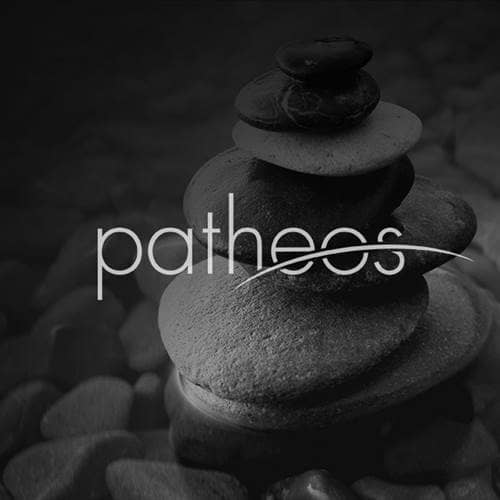- Trending:
- Forgiveness
- |
- Resurrection
- |
- Joy
- |
- Trump
- |
- Kamala Harris
- |
- Supreme Court

RELIGION LIBRARY
Baha'i
Founders
Three central figures shape the history of the Baha'i Faith. The most important is Baha'u'llah (1817-1892), who was the founder of the religion and the main source of its teachings. Though the Bab set up a religion called the Babi religion, he is also regarded by Baha'is as the forerunner who announced the coming of Baha'u'llah, and as a co-founder of the Baha'i Faith. The third figure was 'Abdu'l-Baha who was the appointed successor and authorized interpreter of the teachings of Baha'u'llah.
Following the execution of the Bab in 1850 and the persecution and killing of thousands of his followers, the Babi movement was in disarray. An attempt on the life of the Shah by a small group of Tehran Babis in 1852 led to further intense persecutions. Among those arrested in 1852 was a Babi from a family of high government officials, Mirza Husayn 'Ali Nuri. In his later writings, he stated that it was following this arrest, while he was in a dark underground prison in Tehran in late 1852, that, through a vision of a maiden of heaven, he became aware of his divine mission to guide humanity. He took the title of Baha'u'llah (the Glory of God). Although almost all of his Babi fellow-prisoners were executed after gruesome tortures, he was freed from prison. It had been clearly established that he could have played no part in the plot to assassinate the Shah, having in fact been in exile or under house arrest in the home of the Prime Minister for most of the preceding year. He did, however, lose all of his wealth and possessions.
| Baha'u'llah's Description of His Vision of a Maiden of Heaven while Imprisoned in Tehran in 1852 |
| While engulfed in tribulations I heard a most wondrous, a most sweet voice, calling above My head. Turning My face, I beheld a Maiden—the embodiment of the remembrance of the name of My Lord—suspended in the air before Me. So rejoiced was she in her very soul that her countenance shone with the ornament of the good-pleasure of God, and her cheeks glowed with the brightness of the All-Merciful. Betwixt earth and heaven she was raising a call which captivated the hearts and minds of men. She was imparting to both My inward and outer being tidings which rejoiced My soul, and the souls of God's honored servants. Pointing with her finger unto My head, she addressed all who are in heaven and all who are on earth, saying: "By God! This is the Best-Beloved of the worlds, and yet ye comprehend not. This is the Beauty of God amongst you, and the power of His sovereignty within you, could ye but understand. This is the Mystery of God and His Treasure, the Cause of God and His glory unto all who are in the kingdoms of Revelation and of creation, if ye be of them that perceive." |
Although freed from prison, Baha'u'llah was banished from Iran and chose to go to the city of Baghdad, which was then the provincial capital of the Ottoman province of Iraq. He delayed for a decade making any open reference to his vision of 1852 while he set about rebuilding the shattered Babi community. Opposition from his half-brother, Azal (1832-1912), who was the nominal leader of the Babi community, caused him to spend two years wandering in the mountains of Kurdistan, from 1854-1856. Despite this, and despite the opposition from Iranian religious leaders and consular authorities, he succeeded in revitalizing the Babi community. Alarmed by Baha'u'llah's success and growing influence, the Iranian government persuaded the Ottoman authorities to move Baha'u'llah away from the borders of Iran. So he was summoned to Istanbul, the capital of the Ottoman Empire. As he was leaving Baghdad in April-May 1863, he announced to a few select followers the mission that he believed God have given him.
After a few months in Istanbul, the Ottoman government exiled Baha'u'llah again, this time to Edirne in European Turkey. Here his half-brother Azal, who had voluntarily followed Baha'u'llah to Edirne, intensified his opposition and even attempted to poison Baha'u'llah, causing him serious permanent harm. After this, Baha'u'llah cut his ties to Azal and openly announced his claim to be the bearer of a divine mission to the Babis. Also in Edirne, Baha'u'llah began a series of announcements of his claims and his message to the major religious leaders and rulers of the world.
As a result of a campaign waged by Azal and the resulting doubts thrown into the minds of the Ottoman government ministers, Baha'u'llah was exiled in 1868 to the walled city of 'Akka (Acco, Acre) in what was then the Syrian province of the Ottoman Empire. For more than two years he was kept a prisoner in the citadel of that city; later, when that building was needed for a troop mobilization, he was kept under house arrest in the city. The people of the city, although at first whipped into a frenzy of hatred for these "heretics," were gradually won over, and by 1877, Baha'u'llah was allowed to move to a house outside the city. He eventually moved to a house called the Mansion of Bahji, where he died on May 29, 1892.
Baha'u'llah had appointed, as his successor, his son who took the title 'Abdu'l-Baha (the servant of the Glory). In the early years of his leadership, he overcame the determined opposition of his half-brother, Mirza Muhammad 'Ali (1853-1937), but the latter's scheming did cause the reimposition upon 'Abdu'l-Baha of the original orders for confinement within the city of 'Akka. Following the Young Turks revolution in 1908, 'Abdu'l-Baha regained his freedom and, after entombing the remains of the Bab in a mausoleum that he had built on the side of Mount Carmel, he left for Egypt.
Then in 1911, he traveled to France and England. In London, he made his first public address in the Temple Church. During this trip and a longer journey through North America, Great Britain, France, Germany, and Austria-Hungary in 1912-13, 'Abdu'l-Baha maintained a daily schedule of public addresses, meetings with Baha'i communities, private interviews with both local Baha'is and members of the public, receptions held in his honor, and constant travel. On the eve of World War I, he returned to Haifa, where he led the Baha'i community through the years of the war. His effective leadership in storing supplies and feeding the starving during the war contributed to his prestige. He died on November 28, 1921.
Baha'is regard 'Abdu'l-Baha as the perfect exemplar of all human virtues. They teach that his kindness to the poor and disadvantaged; his wisdom when people brought him their problems; his endurance and contentment despite the suffering and the ill-health that accompanied him throughout his life because of the privations in his early years; his simple lifestyle and his constant good humor were features that inspired his followers, impressed the many eminent people he met, and even won the grudging respect of enemies.
| DATES OF HISTORICAL SIGNIFICANCE (1844--1921) | |
| Declaration of the Mission of the Bab in Shiraz | May 23, 1844 |
| Departure of the Bab on His pilgrimage to Mecca | September 1844 |
| Arrival of the Bab in Maku, Azarbayjan | Summer 1847 |
| Incarceration of the Bab in Chihriq, Azarbayjan | April 1848 |
| Conference of Badasht | June 1848 |
| Interrogation of the Bab in Tabriz, Azarbayjan | July 1848 |
| Martyrdom of the Bab in Tabriz, Azarbayjan | July 9, 1850 |
| Attempt on the life of Nasiru'd Din Shah | August 15, 1852 |
| Imprisonment of Baha'u'llah in the Siyah Chal of Tehran | August 1852 |
| Banishment of Baha'u'llah to Baghdad | January 12, 1853 |
| Withdrawal of Baha'u'llah to Kurdistan | April 10, 1854 |
| Return of Baha'u'llah from Kurdistan | March 19, 1856 |
| Declaration of the Mission of Baha'u'llah | April 22, 1863 |
| Arrival of Baha'u'llah in Istanbul | August 16, 1863 |
| Arrival of Baha'u'llah in Edirne | December 12, 1863 |
| Departure of Baha'u'llah from Adrianople | August 12, 1868 |
| Arrival of Baha'u'llah in 'Akka | August 31, 1868 |
| Death of the Purest Branch (Baha'u'llah's second son) | June 23, 1870 |
| Baha'u'llah moves out of 'Akka | June 1877 |
| Passing of Baha'u'llah | May 29, 1892 |
| First public reference to the Baha'i Faith in America | September 23, 1893 |
| Establishment of the First Baha'i center in the West | February 1894 |
| Arrival of the first group of Western pilgrims in 'Akka | December 10, 1898 |
| Arrival of the Bab's remains in the Holy Land | January 31, 1899 |
| Reincarceration of 'Abdu'l-Baha in 'Akka | August 20, 1901 |
| Start of the construction of the Mashriqu'l-Adhkar of Ashkhabad | November 28, 1902 |
| Release of 'Abdu'l-Baha from incarceration | September 1908 |
| Interment of the Bab's remains on Mt. Carmel | March 21, 1909 |
| Opening of the first American Baha'i Convention | March 21, 1909 |
| 'Abdu'l-Baha's departure for Egypt | September 1910 |
| 'Abdu'l-Baha's arrival in London | September 4, 1911 |
| 'Abdu'l-Baha's arrival in America | April 11, 1912 |
| Laying of the cornerstone of the Mashriqu'l-Adhkar in Wilmette, Illinois, by 'Abdu'l-Bahá | May 1, 1912 |
| 'Abdu'l-Baha's return to the Holy Land | December 5, 1913 |
| Unveiling of the Tablets of the Divine Plan | April 1919 |
| Commencement of the construction of the Mashriqu'l-Adhkar in Wilmette, Illinois | December 1920 |
| Passing of 'Abdu'l-Baha | November 28, 1921 |
Study Questions:
1. What does Baha’u’llah’s name mean?
2. To what cities was Baha’u’llah exiled and why?
3. What opposition did Baha’u’llah face from within his own family and what effect did this have?
4. What does ‘Abdu’l-Baha mean and what position did he hold?
5. To where did the Baha’i Faith spread during ‘Abdu’l-Baha’s ministry and how did ‘Abdu’l-Baha help this?










